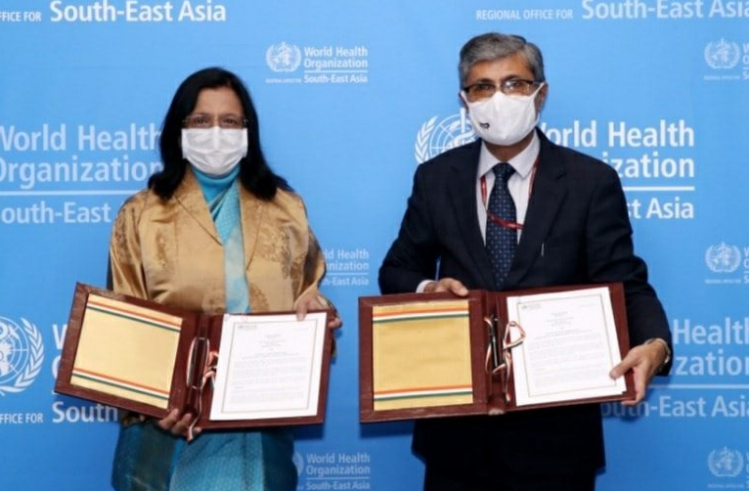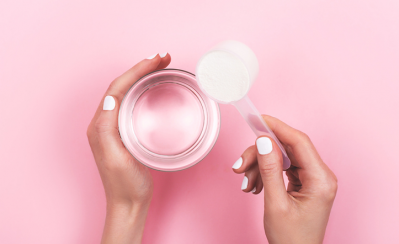WHO’s Ayurveda push applauded but Indian industry calls for clearer regulations to propel growth

India’s Ministry of AYUSH recently signed a letter of exchange with the WHO South East Asia Regional (SEAR) Office in New Delhi on Monday (Feb 15), pledging to integrate these traditional practices into national health care systems.
“As a major outcome of this partnership, the Ministry of AYUSH and WHO would be working to identify various challenges faced by the member states of SEAR in regulating, integrating and further promoting traditional systems of medicine in the respective countries,” the Ministry of AYUSH said.
To do so, an AYUSH expert will be seconded to WHO’s regional traditional medicine programme in New Delhi.
Both parties will also embark on a joint public health research project on COVID-19.
Although Ayurveda has a long history in India, Ayurveda medicines are limited to prescription by Ayurveda practitioners, while the mainstream healthcare institutions follow the Western medicine system.
Meanwhile Ayurveda nutraceuticals, such as those made from traditional Indian botanicals such as ashwagandha, can be bought from retail channels.
To make Ayurveda medicines mainstream, industry players told NutraIngredients-Asia scientific validation was key and partnering with the WHO could lend credence to the traditional medicine system.
“I think that the WHO is a great partner, it has seen traditional medicine of different kinds in many countries, such as the Traditional Chinese Medicine in China and African traditional medicines.
“Therefore, I feel that the partnership can bring greater legitimacy and encourage modern medicines doctors to accept it, which will be a big win,” Hitesh Windlass, MD at Windlas Biotech said.
At the same time, he added that a clearer regulatory guideline on registering new Ayurveda medicines was just as important.
“I think the change that we as the industry is looking for, is how we can take the ayurvedic science forward.
“However, the current regulations are designed to only recognise the ancient manuscripts and texts. But what if I want to study a new Ayurveda medicine for a new disease which did not exist thousands of years ago?
“Therefore, the methodology for taking the regulatory and scientific aspects of traditional medicines into the future needs to be codified, with proper systems for approvals to be established,” he said.
The nutraceutical firm is currently registering its artemisinin supplement with AYUSH as an ayurvedic medicine with COVID-19 indications.
He pointed out that current guidelines on clinical trials of Ayurveda medicines were unclear, including whether a randomised, double-blind placebo-controlled trial is required which is required in modern pharmaceutical trials.
According to AYUSH, human clinical studies are required for new phytopharmaceutical drugs. As for the study protocol, there was no further mention, but the regulator required data of results of dose finding studies and protocols to be submitted prior to conducting the trials.
If a product has been in the market for more than five years, or has adequate published evidence regarding its safety, the studies may be “abbreviated, modified, or relaxed”.
“If the regulatory guidelines are clearer and companies have a clearer idea of how things work, then they can conduct clinical trials that can generate data that is convincing,” he said.
Abhishek Mohan, co-founder and CEO of Hempstreet India – which recently launched ayurvedic cannabis for alleviating menstrual cramps, echoed these points, stressing that “the only way Ayurveda could make into the mainstream healthcare system is by scientific validation.”
Important partnerships
In this case, Abhishek pointed out that partnering with national institutions and securing government aid were some of the ways to propel the science behind Ayurveda.
For the company, it has been working with national research agency CSIR in developing new products and was also granted a US$70k grant from Biotechnology Industry Research Assistance Council (BIRAC) last year.
As for clinical trials, the company has conducted a six-week product sampling with 2,000 Ayurveda doctors in last September on its Ayurveda cannabis product that claims to alleviate menstrual cramps.
The product, named Trailokya Vijaya Vati, is currently available for prescription in over 650 Ayurveda clinics in 21 out of 29 Indian states and the company is working on increasing its distribution.
“AYUSH is aware of us and has been very encouraging. They have already set up a regulatory framework and we intend to engage them especially when expanding overseas,” Abhishek said.


















